
All categories
Featured selections
Trade Assurance
Buyer Central
Help Center
Get the app
Become a supplier

(22828 products available)




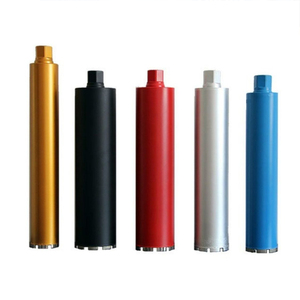




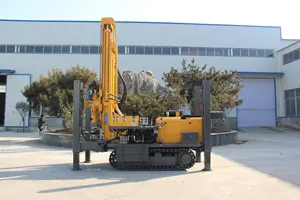




















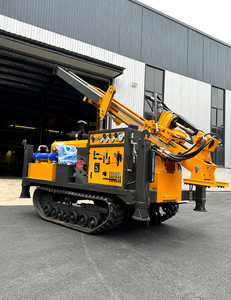













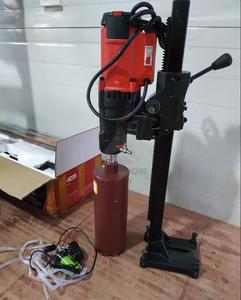

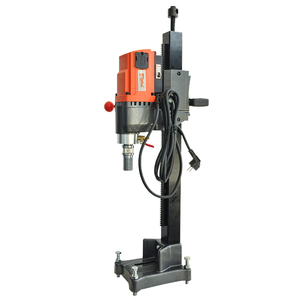




Diamond core drill machines also called coring machines can be classified into various categories based on the source of power and the specific application in the industry. Below are the primary types of coring machines available.
Electric coring machines use electric motors to do the drilling, which makes them very powerful and dependable. These machines are good for drilling holes in concrete, brick, and masonry. Electric coring machines are portable and can be used indoors because they do not generate fumes like gasoline. These machines are mainly used in construction, engineering, and geology.
These machines use hydraulic pumps to provide the necessary drilling power. Why the hydraulic machines are appreciated is because they can be used to drill even in very tough geological conditions. They can be operated on-site since the cores can also be observed through the core barrels of hydraulic systems. These drills are mainly used for large mining operations, oil exploration, and geological surveys.
These machines use air pressure to carry out the drilling. Pneumatic machines are lightweight and can be used even in remote areas where electricity and hydraulic systems are not present. In addition, these machines can be operated at low temperatures. The machines are widely used in Masonry drills, mining, and underwater drilling.
These machines use gasoline engines, which makes them very suitable for outdoor applications where electricity is not readily available. These machines work well for small to medium construction projects. They can drill into concrete, asphalt, and other dense materials. These operations are usually in construction sites, road work, and paving projects.
Diamond core drill bits are key tools for concrete core drilling. It allows for drilling precise holes through various kinds of hard materials. This is because the bits are embedded with industrial-grade diamonds which provide exceptional cutting power.
Segmented diamond core bits have diamond segments on their rims. The segments help with fast and efficient cutting. These core bits are versatile and can be used for dry or wet cutting, depending on the material and the project requirements. These bits are usually used for concrete that has steel reinforcements, granite, and other dense aggregates.
These core bits have a continuous rim with diamonds embedded along the edge. The design cuts smoothly with no gaps. This makes it ideal for generating clean holes. It can also be used on hard tiles, porcelain, and glass. What we like about the continuous-rim diamond drill bit is that it provides exceptional finishing surfaces.
The turbo rim diamond core bits are designed with segmented rims fitted with inner channels. These channels help improve cutting speed by allowing water or slurry to circulate effectively. The bits are ideal for high-speed drilling in concrete, masonry, and stone. The turbo design helps minimize friction and overheating.
Sintered diamond core bits are core drill bits that have diamonds fixed in place using a sintering process. The bonding material wears down gradually. This means that newly exposed diamonds are always available for cutting. In other words, sintered diamond bits are tough and durable. They can be used for extended periods to drill through very hard materials. These are such a great investment for professionals who do a lot of drilling.
These bits have an electroplating process that attaches diamonds to a metal bond. Electroplated diamond core bits are ideal for occasional use or less intensive drilling tasks. They are cost-effective, especially when quick drills need to be done in softer materials.
Coring machines are critical in ensuring the success of drilling operations. These machines must be selected carefully to avoid incurring additional costs. Here are key factors to consider when purchasing core drilling machines.
Coring machines are specifically designed to drill holes in particular materials. Concrete, stone, asphalt, and brick require different coring machines. Understanding the nature and hardness of the material being drilled is paramount. This ensures the selected machine has the strength and the right bit design to tackle the job.
Consider how deep and wide the holes have to be drilled. Smaller diameter holes require less power. Larger diameter holes will most likely require a more powerful coring machine. Deep holes will need machines that have extended drill rods and deeper core bit designs.
If the drilling work is indoors or in small spaces, electric coring machines are the best. For drilling holes outdoors, especially in remote areas, gasoline-powered or pneumatic coring machines are ideal. Additionally, the weight of the machine contributes to its portability. If it has to be moved from one location to another frequently, it's important that it isn't too heavy.
Coring machines do offer budget-friendly alternatives, especially for lighter drilling tasks. The budget can also be expanded if the demands require high-performance diamond drilling machines. Maintenance costs should also be factored into the operating costs.
A core drill machine that will be frequently used may require a high-performance coring machine. It also has to be durable so it can handle the constant wear and tear. Machines that will be used occasionally do not need industrial-grade machines. Cost-effective models are sufficient. These will be required for small home projects or for short-term use.
Only the best coring machines are chosen based on their core features. Understanding these features is important as they impact performance, precision, and ease of use. Below are some of the important features of drill core kits.
It pushes the bit through the material being drilled. High power is required for drilling through harder materials such as concrete and granite. Less power is needed for softer materials such as brick and asphalt. Motor power also impacts speed. A powerful motor will provide the required speed to drill efficiently.
These are important because they offer various drilling speeds. High speeds are ideal for drilling softer materials. Low speeds provide better control and are suitable for harder materials. Variable speed control enables the user to adjust the drilling speed to suit the specific requirements of the project at hand.
Diamond drills generate a lot of heat when they're cutting. Water helps reduce the heat and also eliminates dust. The containment system allows for efficient cooling without creating a messy work environment. It also recycles water for projects where water usage has to be minimized.
The depth of the drill has to be adjustable depending on the project requirements. This feature allows users to quickly and easily set the desired depth. Look for machines with simple locking mechanisms. These mechanisms ensure that the set depth remains unchanged throughout the drilling process.
Many projects require moving the coring machine from one job site to another. The weight of the machine must be considered. Heavy-duty machines are more durable but are too heavy to be moved easily. Features such as collapsible handles and storage compartments for accessories also make the machines portable.
A1. The lifespan of diamond core drill bits depends on such factors as the material being drilled, the type of core bit used, and working conditions. Harder materials such as granite will wear the bit down faster than softer materials such as concrete. Sintered diamond core bits usually last longer because of their durable bonding. Wet cutting also reduces friction and heat.
A2. Diamond core drill bits are used to cut precise holes in hard materials. These materials can be concrete, brick, masonry, stone, asphalt, or tile. Core drill bits have diamond abrasives bonded to their edges. This provides exceptional durability and cutting power. It allows them to penetrate dense and hard surfaces.
A3. Segmented diamond core bits are ideal for core drilling concrete. This is because they are specifically designed to provide efficient cutting. This makes them suitable for both dry and wet drilling. They can tackle reinforced concrete, granite, and masonry. Turbo rim diamond core bits also offer speedy drilling without compromising the bit's integrity.
A4. The performance of the diamond core drill bit is affected by the quality and type of diamonds used. Harder diamonds will provide better cutting ability and wear resistance. The bond material accounts for the drilled material. Softer bonds conform to the material's surface. This means they wear down quickly and will need to be replaced often. Hard bonds wear slowly and last longer.